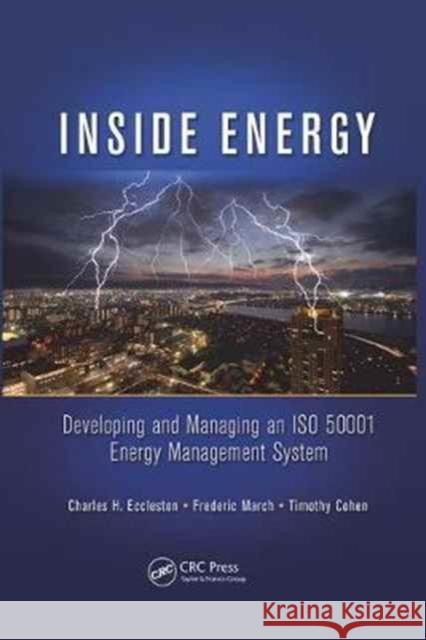Inside Energy: Developing and Managing an ISO 50001 Energy Management System » książka
Inside Energy: Developing and Managing an ISO 50001 Energy Management System
ISBN-13: 9781138071834 / Angielski / Miękka / 2017 / 319 str.
Inside Energy: Developing and Managing an ISO 50001 Energy Management System
ISBN-13: 9781138071834 / Angielski / Miękka / 2017 / 319 str.
(netto: 311,20 VAT: 5%)
Najniższa cena z 30 dni: 287,08
ok. 16-18 dni roboczych.
Darmowa dostawa!
Informed by the authors’ extensive experience in helping organizations improve the performance of their management systems, Inside Energy: Developing and Managing an ISO 50001 Energy Management System covers how to apply each of the many requirements of the standard in a systematic and comprehensive manner. It discusses how converting an existing sub-optimal energy system into a state-of-the-art high quality one produces a demonstrably high return on investment. The book explores how to achieve energy performance targets and qualify for ISO 50001 registration. It helps you manage the skills, knowledge, and experience of the many experts who will participate in your organization’s Energy Management System (EnMS) policy, planning, and implementation.
This book provides practical information for understanding and developing an ISO 50000 Energy Management System (EnMS), including clear and concise explanations of the standards and requirements. Building from chapter to chapter, it supplies comprehensive direction for developing, implementing, and managing an EnMS. The text also explains the relationship between ISO 9000 and 14000, and offers guidance for integrating EnMS concepts with existing organizational policies, processes, and procedures. It also offers additional guidance on methods available to management and energy teams when implementing the ISO 50001 requirements.
The book takes readers through the steps that can transform existing energy management systems to far more effective ones that significantly reduce the costs of energy in the business’ bottom line. It includes perspectives on multinational and national energy and environment policies that will likely affect the cost of energy purchased in the world’s markets. Using the information found in this book, you can save your organization money by increasing energy efficiency and/or reducing and more effectively managing energy generation or usage. You can also reduce generation of greenhouse gas (GHG) emissions and promote improved public relations by demonstrating that the organization is taking measurable and tangible efforts (ISO 50001) to manage energy.











